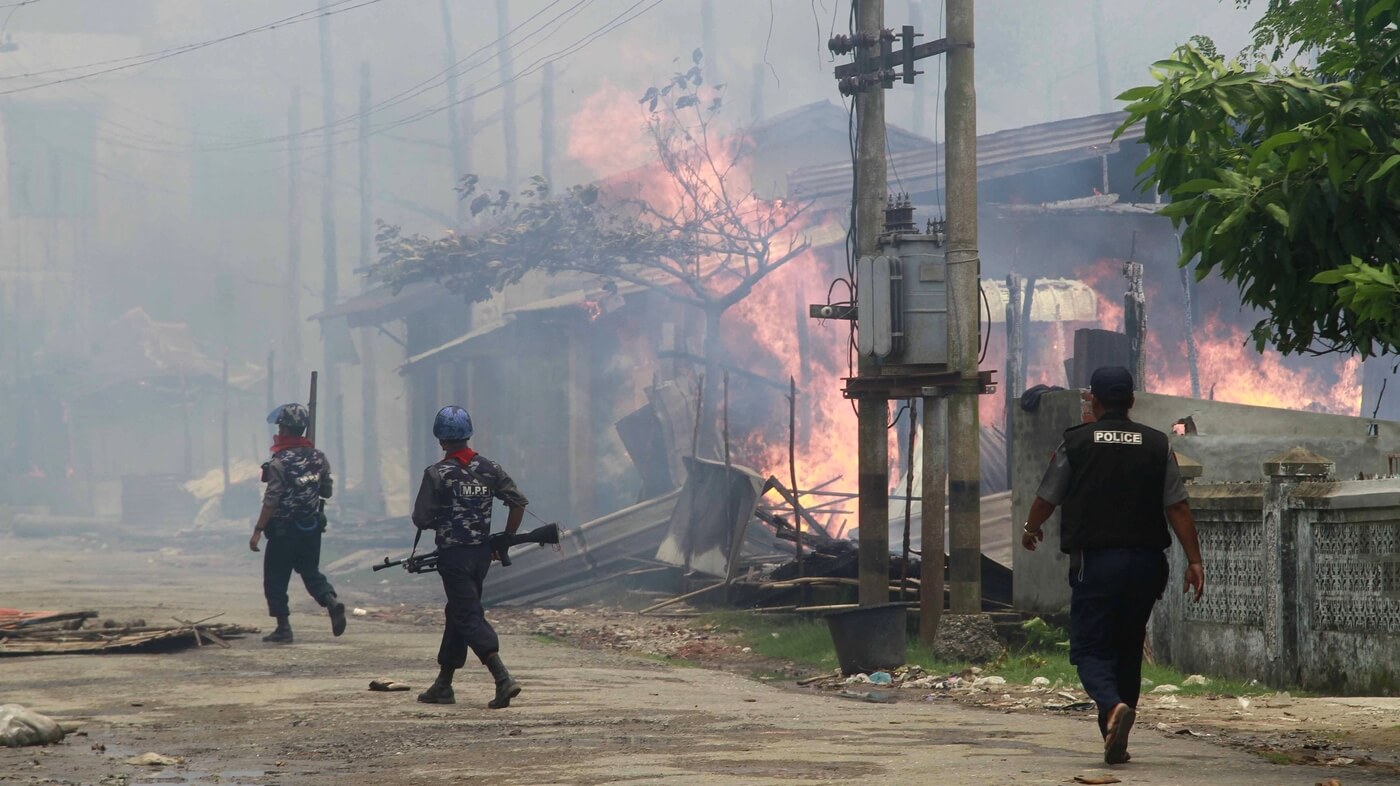The United Nations Office of the High Commissioner of Human Rights (UNOHCHR) and the UN High Commissioner for Refugees (UNHCR) have called on Myanmar’s neighbouring countries to extend protection to refugees fleeing the country, amidst a brutal crackdown by the military on pro-democracy protests. Assistant High Commissioner for Protection at UNHCR Gillian Triggs said in a press note that “it is vital that anyone crossing the border, seeking asylum in another country, is able to access it… Children, women and men fleeing for their lives should be given sanctuary. They must not be returned to a place where their lives or freedom may be at risk. This principle of non-refoulment is a cornerstone of international law and is binding on all states.”
In a news release on Thursday, the UN Human Rights Office for South-East Asia offered more information regarding the situation on the ground and said that “night raids, mass arrests and killings have become daily occurrences throughout the country.” It further added that “de facto military authorities have increasingly resorted to heavy weaponry such as rocket-propelled and fragmentation grenades, heavy machine guns, and snipers to kill demonstrators in massive numbers.”
Last weekend, while the Tatmadaw celebrated its annual Armed Forces Day with a huge parade of troops in the capital city of Naypyidaw, security forces’ attacks on protestors killed at least 141 people across the country, making it the bloodiest day since the coup on February 1. Simultaneously, rebels in eastern Myanmar’s Karen state also reported being targeted in airstrikes on Saturday and Sunday, only hours after the Karen National Union seized a military outpost and killed 10 people.
Also read: Myanmar’s Experiment With Democracy Was Always Susceptible to Failure. Here’s Why.
The violence prompted 3,000 villagers to flee to Thailand, but they were reportedly forcefully sent back to Myanmar. Similarly, India has also been accused of sending refugees back. Indian police officials said on Thursday that a 14-year old Rohingya girl was being deported to Myanmar because it had been “previously scheduled”. However, the UNHCR condemned the move, saying that the situation in Myanmar was “not yet conducive for voluntary return in a safe, secure, and sustainable manner,” and that returning the child to the country “may place her at immediate risk of serious harm.”
Along with protestors, the clampdown has also targeted journalists and media persons reporting from within the country. In the past two months, security forces have arrested at least 56 reporters, fatally shot three, and hampered communication by outlawing online news outlets. “I know I might get killed at some point for taking a video record of what is happening. But I won’t step back,” citizen journalist Ma Thuzar Myat told The New York Times.
Also read: Myanmar’s Military Coup Will Further Exacerbate the Plight of the Rohingya
So far, several international organisations and countries, including the United States (US), United Kingdom (UK), Canada, New Zealand, have sanctioned Myanmar for its brutal suppression of dissent. Many high-level politicians, including State Counsellor Aung San Suu Kyi and President Win Myint, have been placed under house arrest. The coup was attributed to the failure of the government to act on the military’s questionable claims of voter fraud in the election conducted last November when the National League for Democracy (NLD) won in a landslide victory with 83% of the votes. Struck by Aung San Suu Kyi’s overwhelming and enduring popularity, the military sought to reinforce its dominance by forcefully retaking power.

